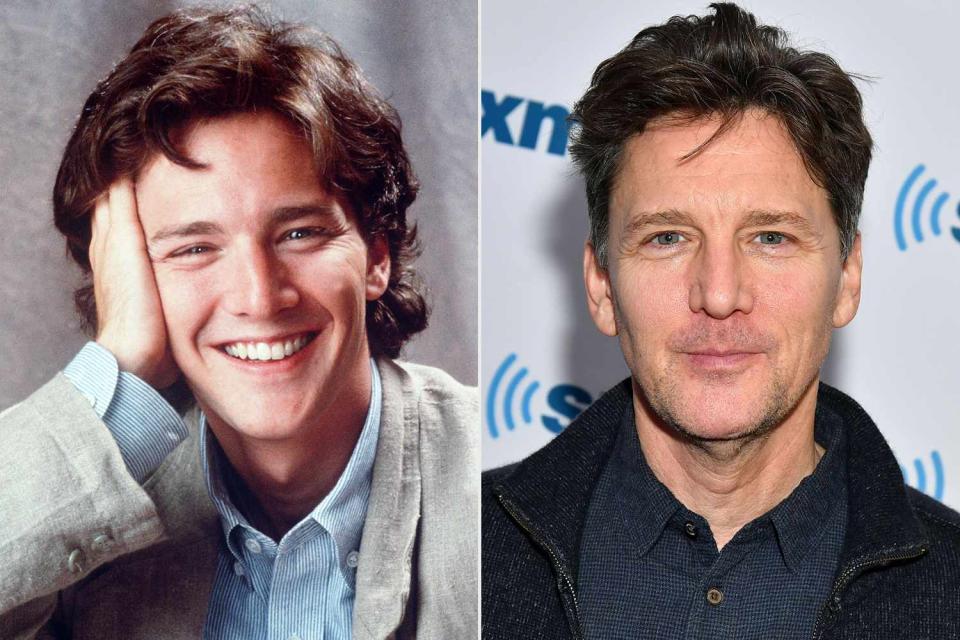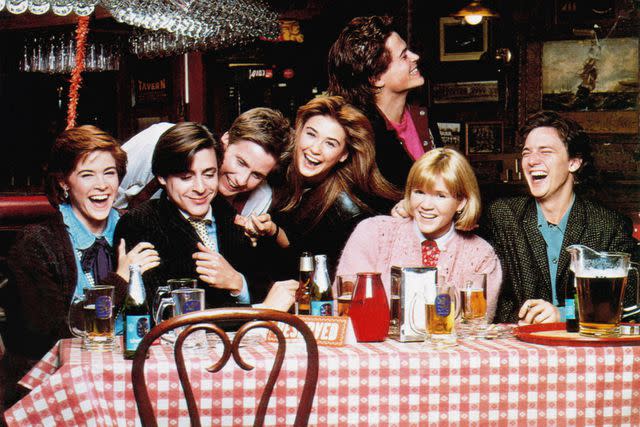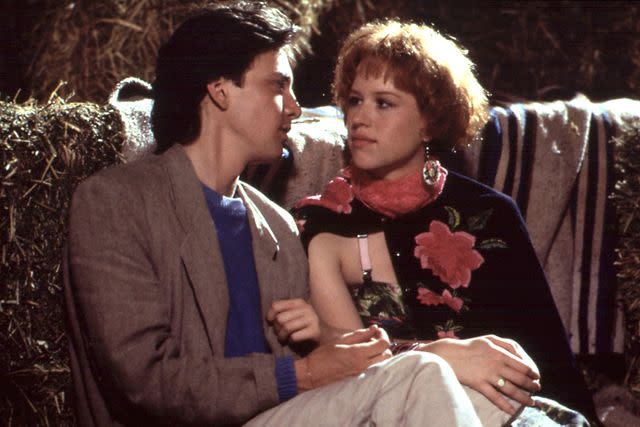Andrew McCarthy Explains Why He Hated the Term ‘Brat Pack’: ‘I Felt Unseen’ (Exclusive)
The 'Pretty in Pink' star says that after he got grouped in with the young actors taking Hollywood by storm in the '80s, his career took a nosedive

Kobal/Shutterstock; Slaven Vlasic/Getty
Andrew McCarthy in the 1980s and nowIn 1985, Andrew McCarthy became part of the hottest group of young actors ever to hit Hollywood all at once when he appeared in St. Elmo’s Fire.
“It changed my life,” McCarthy, 61, tells PEOPLE of the coming-of-age drama about seven college grads that also starred Rob Lowe, Emilio Estevez, Demi Moore, Judd Nelson, Ally Sheedy and Mare Winningham.
It also changed the movie industry.

Columbia Pictures/courtesy Everett Collection
The cast of St. Elmo's Fire in 1985“Suddenly Hollywood realized kids go to the movies way more than adults,” he says. "We've been inundated with movies for young people ever since, but before that, movies were not for the young. It was The Magnificent Seven, The French Connection, The Godfather. Movies were grown up entertainment."
So when he and his colleagues, including Pretty in Pink costar Molly Ringwald, started gaining major traction, he thinks it rubbed some people the wrong way.
"The old guard were like, ‘Wait a minute, who are these young punks coming along?!’” he says with a laugh.
And then, the clincher. In 1985, a New York Magazine article about Emilio Estevez and the rise of his young colleagues came out, calling them “Hollywood’s Brat Pack." It was meant to be a play on words, but McCarthy says they resented it and thought it diminished their acting careers.
Never miss a story — sign up for PEOPLE's free daily newsletter to stay up-to-date on the best of what PEOPLE has to offer, from juicy celebrity news to compelling human interest stories.
“It did have personal ramifications,” he says. “Were we brats? We were certainly privileged. But there wasn’t anything great about us. We were just in the right place at the right time and represented that seismic change in pop culture. You’re easy prey when you’re exposed in that way.”

Moviestore/Shutterstock
Andrew McCarthy and Molly Ringwald in Pretty in PinkUnfortunately, the nickname definitely stuck: "It was one headline in one regional magazine that was on stands for a week," he says. "Over 35 years later, we're still talking about it."
In his new documentary Brats (streaming June 13 on Hulu), the actor visits old friends and costars like Estevez, Lowe, Moore and Sheedy to explore the impact the label had on them.
"We just felt unseen," he says of the term. "It felt like I lost control of the narrative of my career. Who wants to be stigmatized and branded and labeled?" He says everyone felt the same way, and none of them had a desire to act with each other again.
Related: BRATS Trailer: Andrew McCarthy Reunites the Brat Pack to ‘Clear the Air’ in Documentary (Exclusive)
"We all scattered for the hills," he says. "We didn't want to be associated with it. It had a long shadow over everyone's life to a degree."
Of course, now, at age 60, McCarthy says he can look back on his body of work — and yes, the term Brat Pack — through a different perspective.
Related: Brat Pack Babies, Husbands and Wives: Meet the Families of the A-list '80s Favorites
"The movie is about reconciling the experiences of our life. We tend to look at those in one way, and then maybe they are worth reconsidering at a later point in life, as you know, because I now feel 180 degrees differently about the Brat Pack than I did in 1985," he says.
"[Now] we can look back on this thing with a certain affection. We can go, ‘Oh, being in the Brat Pack? That was pretty awesome.’ ”
For more People news, make sure to sign up for our newsletter!
Read the original article on People.


